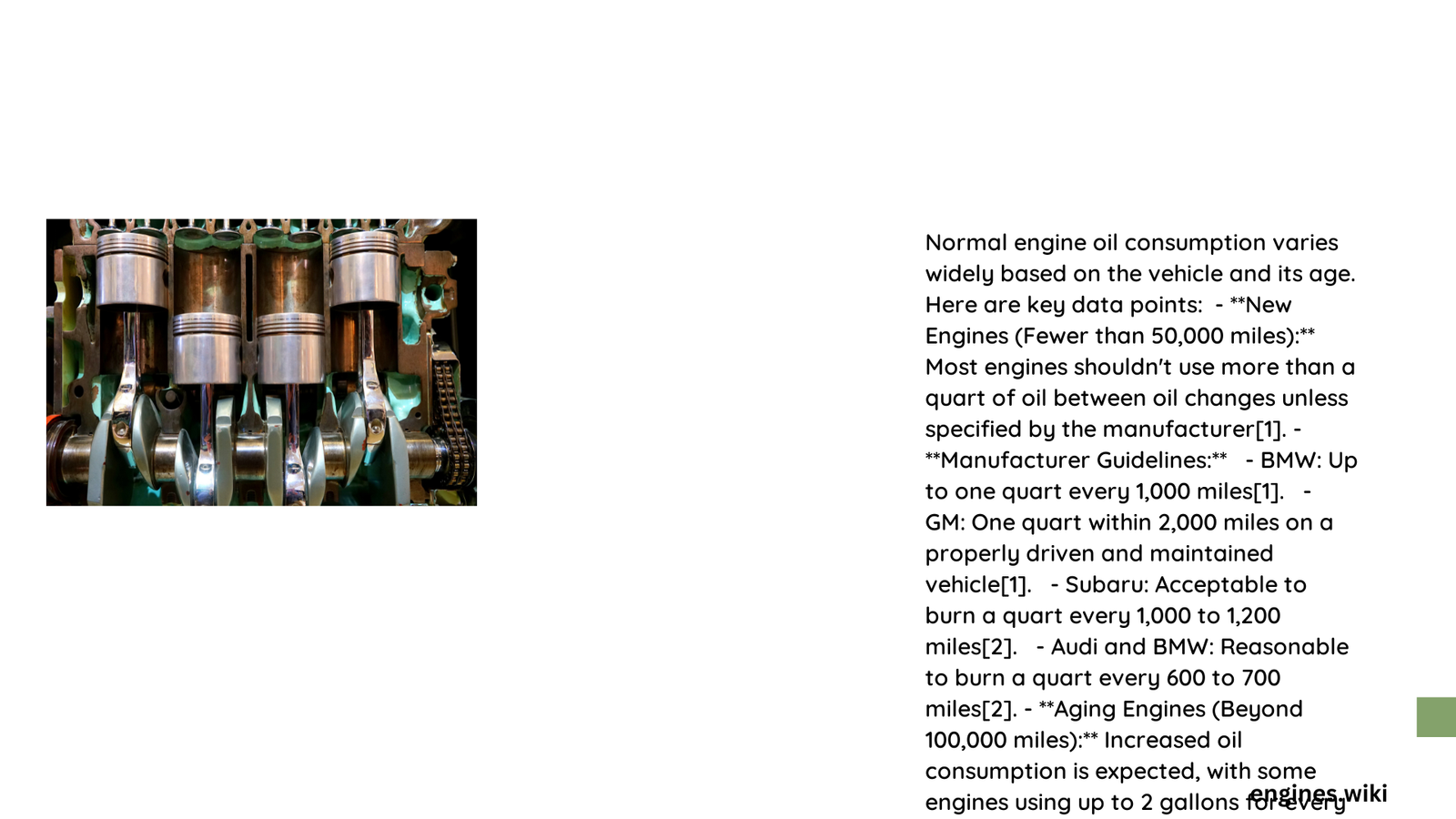Engine oil consumption is a natural phenomenon that varies across different vehicle types, ages, and operating conditions. Understanding the nuanced aspects of normal oil consumption helps vehicle owners distinguish between expected usage and potential mechanical issues. Modern engines typically consume a small amount of oil during operation, which is influenced by factors like engine design, materials, driving habits, and maintenance practices.
What Defines Normal Engine Oil Consumption?
Normal engine oil consumption isn’t a one-size-fits-all metric. Different engines have varying acceptable consumption rates based on their design and age. Generally, most manufacturers consider 0.5 to 1.5 quarts per 1,000 miles as a standard range for normal oil consumption.
Factors Influencing Oil Consumption Rates
| Engine Factor | Impact on Oil Consumption |
|---|---|
| Engine Age | Higher in new and older engines |
| Driving Conditions | Extreme temperatures increase consumption |
| Maintenance Level | Regular service reduces abnormal consumption |
| Oil Viscosity | Lighter oils tend to consume faster |
Why Do Engines Consume Oil?

Engines consume oil through several mechanical processes:
- Piston Ring Dynamics: Slight oil passage between piston rings and cylinder walls
- Valve Seal Wear: Gradual degradation of valve stem seals
- Combustion Chamber Interactions: Microscopic oil burning during high-temperature operations
- Crankcase Ventilation: Pressure management through PCV systems
How to Monitor Oil Consumption?
Effective monitoring involves:
- Regular dipstick checks
- Tracking oil level between changes
- Documenting mileage and oil usage
- Observing warning signs like blue exhaust smoke
What Are Acceptable Consumption Ranges?
- New Engines: Up to 2 quarts per 1,000 miles during break-in
- Mature Engines: 0.5 to 1 quart per 1,000 miles
- Older Engines: Potentially higher consumption, up to 1.5 quarts
When Should You Be Concerned?
Warning signs of excessive oil consumption include:
- Rapid oil level drops between changes
- Consistent blue smoke from exhaust
- Unexplained performance degradation
- Oil pressure warning lights
Strategies to Minimize Oil Consumption
- Use manufacturer-recommended oil grades
- Maintain consistent service intervals
- Avoid extreme driving conditions
- Address minor leaks promptly
- Use high-quality synthetic oils
Technical Diagnostic Approaches
Professional mechanics recommend:
- Compression tests
- Leak-down tests
- PCV system inspection
- Detailed engine component evaluation
Conclusion
Understanding normal engine oil consumption requires a holistic approach. While some oil consumption is inevitable, excessive usage indicates potential mechanical issues requiring professional assessment.
